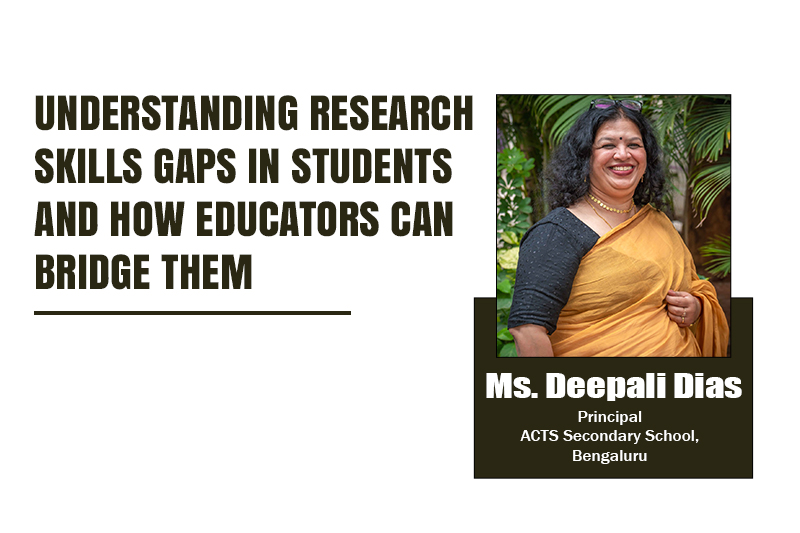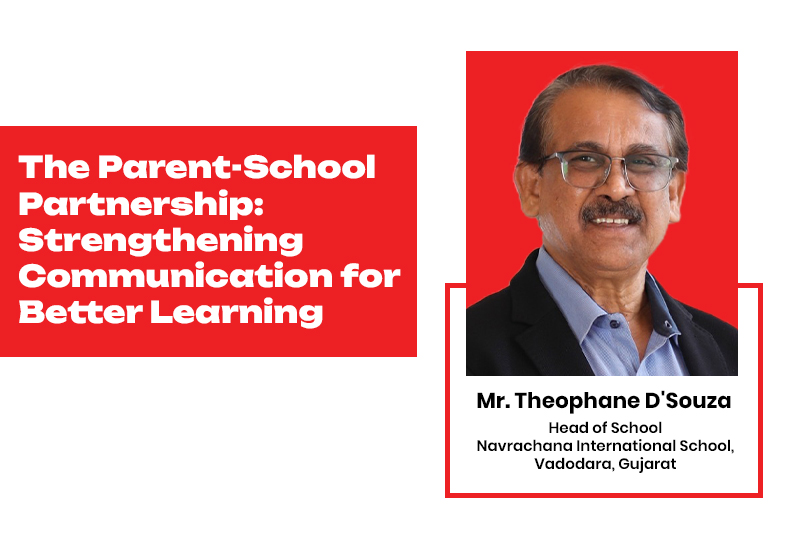Dr. Sridhar G, Deeksha STEM Schools Bengaluru: Championing Fairness in AI-Powered Education
“The highest education is that which does not merely give us information, but makes our life in harmony with all existence.” – Rabindranath Tagore
In an age where technology rapidly reshapes every aspect of human life, education is at a pivotal crossroads. Integrating Artificial Intelligence (AI) into classrooms and learning platforms is among the most transformative developments in this space. While AI holds immense promise for revolutionizing the educational landscape, it also presents significant challenges, particularly in addressing bias and fairness issues.
Dr. Sridhar G, founder of Deeksha STEM Schools in Bengaluru, is uniquely positioned to reflect on these developments. A seasoned academic and visionary educator, Dr. Sridhar’s journey spans more than three decades, during which he has played a pioneering role in transforming STEM education in India. With credentials from IIT Kharagpur and Johns Hopkins University, his commitment to bridging scientific knowledge with empathetic pedagogy is evident in every initiative he undertakes.
As a thought leader in education, Dr. Sridhar is deeply invested in understanding and addressing the ethical implications of AI in schools. His core belief: technology must serve every learner equitably—not just the statistically average or digitally privileged.
The Dual Edge of AI in Education
AI-powered tools have ushered in a new era of personalization and scale in education. Platforms that adapt to individual learning styles, automate grading, and provide instant feedback have expanded access and improved efficiency. In theory, AI enables individualized instruction on a scale never before imagined.
However, Dr. Sridhar cautions that this idealized vision can fall short if the underlying algorithms are not built with diversity and inclusivity at their core.
“True educational equity isn’t just about access,” Dr. Sridhar asserts. “It’s about designing systems recognizing every learner’s voice, context, and potential. In the age of AI, fairness must be coded into the foundation, not patched in as an afterthought.”
This message resonates deeply in a multicultural, multilingual country like India, where learners bring diverse backgrounds, dialects, and learning contexts.
When Algorithms Miss the Mark: Real-World Bias in AI Tools
AI systems are only as unbiased as the data and rules upon which they are built. Often trained on datasets from Western, English-speaking populations, these tools may inadvertently marginalize learners who deviate from the norms embedded in those datasets.
Dr. Sridhar illustrates this concern with vivid examples:
1. Language Learning Platforms
Many speech recognition tools evaluate English pronunciation against United States or the United Kingdom standards. For instance, a student from rural Karnataka might be unjustly penalized for “incorrect” pronunciation due to a regional accent, even if they are fluent and intelligible. Phrases commonly used in Indian English, like “passed out of school” or “do the needful,” may be flagged as errors, subtly eroding the learner's confidence and cultural identity.
2. Personalized Learning Algorithms
AI systems that track performance often steer struggling students toward easier questions, assuming that difficulty equals disinterest. Dr. Sridhar terms this the “remedial loop” trap, where learners are unintentionally held back instead of being encouraged to improve through guided challenge. What starts as support can quickly turn into stagnation.
3. AI-Powered Code Evaluation
In STEM education, where Deeksha excels, many platforms for coding assignments grade based on rigid syntax matching rather than logical reasoning. A student’s innovative approach might be marked incorrect simply for deviating from a predefined structure. This undermines creativity and discourages divergent thinking, which is crucial in scientific inquiry and innovation.
These scenarios make it clear that bias in AI is not a technical footnote—it is an educational liability.
Equity as a Foundational Principle, Not a Feature
Dr. Sridhar believes that bias in AI-powered tools is not merely a reflection of technical oversight—it reveals a deeper systemic issue in how education technology is developed and deployed.
As India moves forward under the guiding principles of the National Education Policy (NEP) 2020, which emphasizes inclusivity and technological integration, Dr. Sridhar calls for concrete frameworks to ensure fairness in AI systems used in schools.
“It’s not enough to validate AI tools for accuracy. We must audit them for cultural relevance and social sensitivity.”
To this end, he proposes a national audit mechanism, possibly under the aegis of NCERT or AICTE, to assess AI products used in Indian classrooms. These audits would test functional correctness and evaluate how well tools accommodate regional dialects, non-Western idioms, socio-economic diversity, and inclusive pedagogies.
Building Fairness Into AI: A Strategic Framework
Dr. Sridhar advocates for a multi-pronged strategy to build fairness into the DNA of educational AI systems:
1. Diverse and Inclusive Datasets
Training AI on datasets that reflect India’s linguistic, regional, and cultural diversity can drastically improve fairness. Models need exposure to real-world variations in language, learning styles, and social contexts.
2. Context-Aware Design
Algorithms must move beyond rigid accuracy metrics to account for cultural idioms, regional language nuances, and educational diversity. A deeper understanding of context will help AI make fairer assessments.
3. Human Oversight
AI should be seen as an assistant, not a replacement, for educators. Human interpretation remains essential to ensure that assessments are fair and that interventions are empathetic and tailored to individual needs.
4. Transparent Evaluation
Learners and teachers should be able to understand and challenge AI decisions. Openness in generating results fosters trust and invites feedback that can improve system performance.
5. Regular and Independent Audits
As AI systems evolve, regular third-party evaluations are critical. Continuous monitoring enables the detection of new forms of bias and ensures that fairness benchmarks are consistently maintained over time.
Preparing Students for a Just and AI-Driven Future
At Deeksha STEM Schools, Dr. Sridhar’s approach reflects a broader mission: to prepare students not just for exams, but for ethical participation in a world increasingly influenced by technology.
His institutions blend analytical rigor with moral clarity, ensuring students grow as critical thinkers who recognize bias, understand systems, and contribute positively to society.
This education model goes beyond coding and computation. It fosters responsible digital citizens who are prepared to lead with intellect and integrity.
Conclusion
As AI continues to transform education, it is no longer whether we should adopt these tools—but how we ensure they are fair, inclusive, and empowering for every learner. Dr. Sridhar G’s vision and advocacy offer a blueprint for this future.
Bias in AI is not an inevitability—it is a solvable challenge. But solving it requires deliberate design, inclusive data, human empathy, and strong oversight mechanisms. With leaders like Dr. Sridhar championing these values, the path toward a truly equitable AI-driven educational system becomes clearer.
In his words and actions, Dr. Sridhar reminds us that education, at its best, is not just about knowledge—it is about justice.
Want more thought-provoking articles like this? Check out EducationToday – where education meets innovation.






